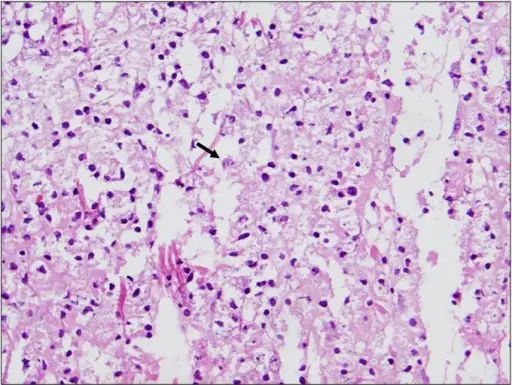Malakoplakia is a rare inflammatory condition that typically occurs in immunocompromised individuals and is thought to be secondary to a bactericidal defect in macrophages. Malakoplakia typically affects the urinary tract, but the involvement of nearly every organ system has been reported.
What is the Pathology of Malakoplakia?
The pathology of malakoplakia is:
-Etiology: The cause of malakoplakia is the insufficient killing of bacteria by macrophages.
-Genes involved: BTK.
-Pathogenesis: The sequence of events that lead to malakoplakia is deficiencies in beta-glucuronidase and intracellular cGMP resulting in inadequate microtubular function and phagolysosomal activity, leading to the accumulation of partially digested bacteria in macrophages.
-Morphology: The morphology associated with malakoplakia shows single or multiple white-yellow soft raised plaques on the mucosal surface.
-Histology: The histology associated with malakoplakia shows dermal sheets of von Hansemann cells and a variable mixed inflammatory infiltrate consisting of neutrophils, lymphocytes, and plasma cells.
How does Malakoplakia Present?
Patients with malakoplakia are typically affected immunocompromised women at 50 years of age. The symptoms, features, and clinical findings associated with Malakoplakia include urinary symptoms and urinary tract infection.
How is Malakoplakia Diagnosed?
Malakoplakia is diagnosed by urinalysis.
How is Malakoplakia Treated?
Malakoplakia is treated by catheterizing the affected person with full aseptic precautions. Additionally, irrigating the bladder with distilled water three times daily with a 3-way Foley catheter and urinary antiseptics like pyridium may be used to help relieve urinary symptoms. Antibiotics such as trimethoprim-sulfamethoxazole or ciprofloxacin may be used.
What is the Prognosis of Malakoplakia?
The prognosis of malakoplakia is excellent with appropriate treatment.



